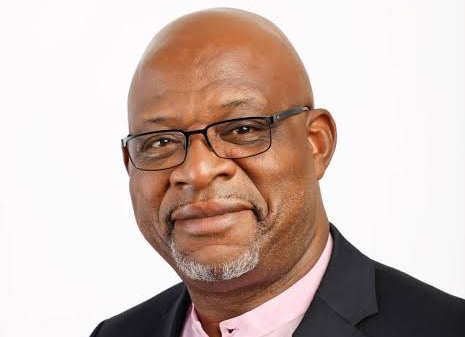Ex -DG NIMASA, Omatseye Advocates CVFF Audit , Says “Fund Stood At $100 Million 12 Years Ago”
A former Director General of the Nigerian Maritime Administration and Safety Agency (NIMASA), Barr. Raymond Temisan Omatseye has advocated for immediate audit of the Cabotage Vessel Financing Fund (CVFF) accounts , saying that the fund was about $100 million dollars twelve years ago .
Omatseye, a maritime lawyer, who doubles as a former President of Africa Ship Owners Forum, said the fund ought to have gone beyond 350 million dollars eighteen years after the commencement of its contribution by ship owners .
Speaking with journalists on the sidelines of the Taiwo Afolabi Annual Maritime (TAAM) fifth edition held at the University of Lagos on Friday, Omatseye stressed the need for immediate auditing of the CVFF accounts where all such levies were paid.
Omatseye raised concerns that the 3 percent collection from offshore supply boats, tankers and all vessels coming to Nigeria for the past 18 years could not have remained at that sum.
The former DG NIMASA affirmed that, Basically from what we know, not a dime has been taken from this money, so you cannot tell me that since 18 years that you have been collecting this money which is 3 percent of every single offshore supply boat, every tanker, every vessel looking in Nigeria.
He noted that :“I left there when it was 100 million, so why are you still telling me it is 350 million. That was twelve years ago.
“We have been collecting this money for 18 to 19.years now, how much is there? You cannot just wake up one morning and say 200 million dollars is there and next tomorrow, you say it is 400 million. Let there be audit because there is a specific account that the IOCs pay this money into.
“What the National Assembly is doing is not right. First of all, we need to know how much is there.,”Omatseye maintained.
Omatseye also described the administration of war risk premiums in shipping as the biggest fraud in the world.
In his words: “War Risk Premium is the biggest fraud in the world. It is not only fraudulent, but also criminal in nature. When I was the Director General of NIMASA, the leadership of NLNG approached me to complain about this war risk premium because it was too high. At that time, Nigeria was paying about $400million annually for this insurance but there were no recorded claims to validate this insurance premium.”
“People just sit in Lloyd’s of London and the Joint War Risk Committee to collect these monies. Yet, at that time the rates levied on Nigeria was about 4 times the rates charged on vessels going to the war-torn Afghanistan. War Risk Insurance is an invisible charge that is built into the cost of shipping as all imported goods have to pay for this premium.”
On removal of subsidy from fuel, he argued that Nigeria is in a serious mess because of the complacency and failure of the government to invest in shipping over the years.
He said that the tankers that used to carry petroleum products at $20,00 per day has increased to $50,000 and $80,00 to Warri and Calabar respectively.
“Now we are in a mess because when the shipping industry went down, the foreign ship owners took their ships to the western world.
“For instances, the tankers that used to bring petroleum products for 20,000 a day for charter. That means you will do your STS and bring in your goods. Now these same tankers are charging Warri $55,000 a day, Calabar, $80,000 dollars.
“So, if they remove subsidy tomorrow, it is not about the landing cost of petroleum, it is the freight rate that is going to kill us.
“This is because of the complacency and failure to invest in shipping. We are going to be in a total mess because they are going to remove subsidy in a week or two weeks time.”
By Roland Ekama




Comments are closed.